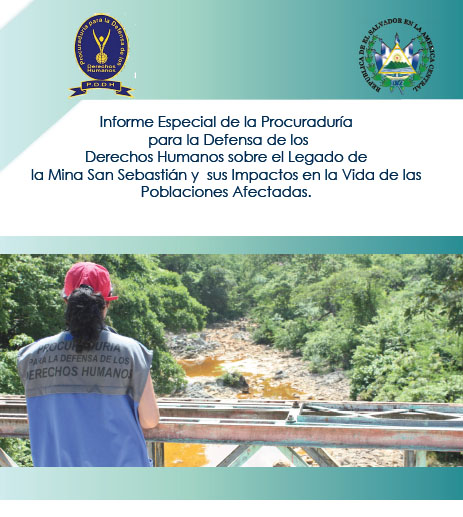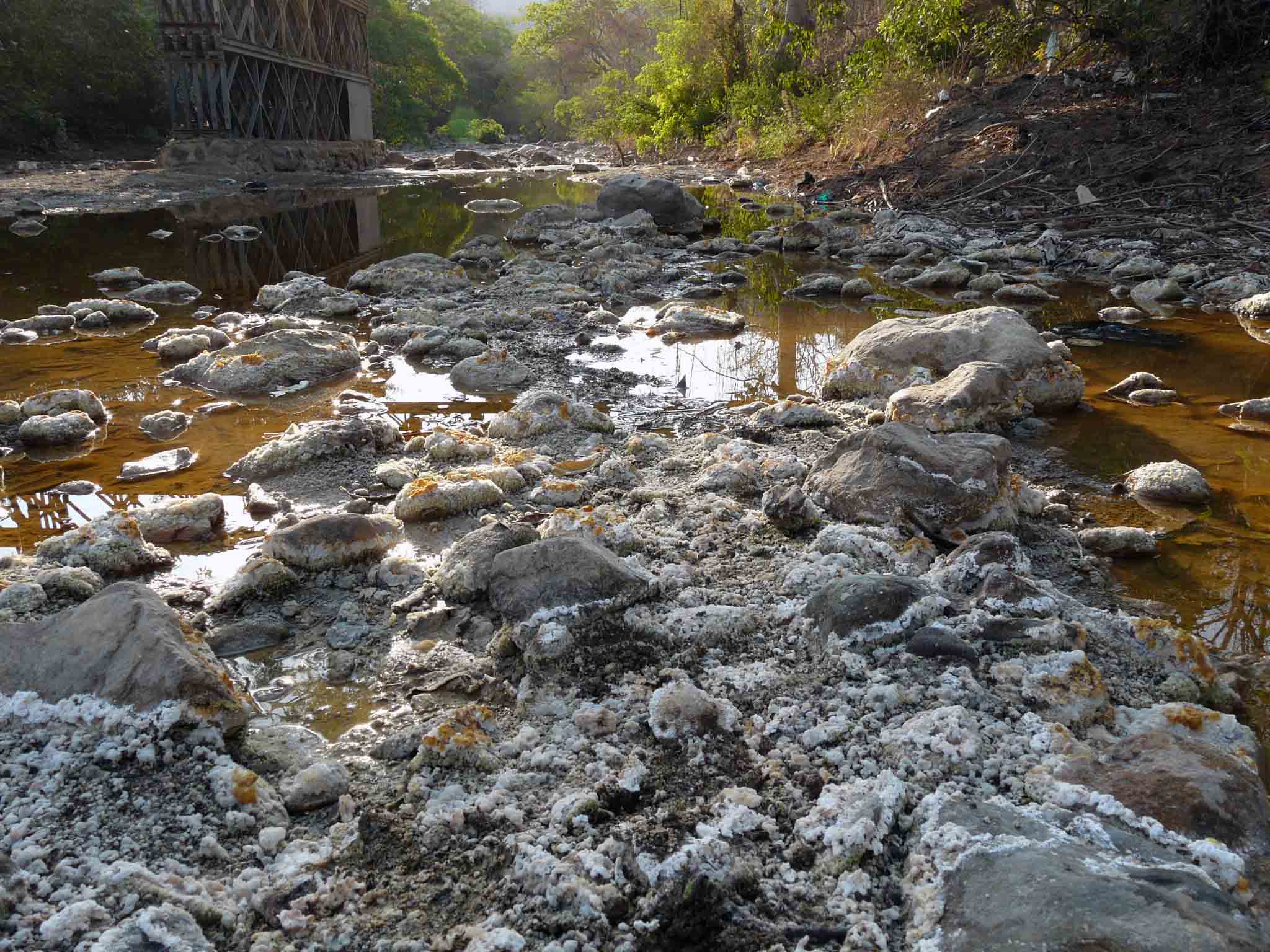The Attorney for the Defense of Human Rights released a Special Report on the toxic legacy of the San Sebastian mine and the impacts on the human rights of the affected populations.
 The Special Report, written by an international multidisciplinary team of experts in human rights and international law, hydrology and economics, concludes that the San Sebastian mine has instituted a negative legacy of mining in the broadest sense and recommends a series of actions aimed at remedying the damage to ecosystems, reparation for affected communities and measures to improve the human rights of people that inhabit the area. It urges the approval of a law prohibiting metal mining permanently in the country and demands that Commerce Group Corporation and its subsidiaries finance part of the cost of prevention and remediation of acid drainage resulting from their activities in the area.
The Special Report, written by an international multidisciplinary team of experts in human rights and international law, hydrology and economics, concludes that the San Sebastian mine has instituted a negative legacy of mining in the broadest sense and recommends a series of actions aimed at remedying the damage to ecosystems, reparation for affected communities and measures to improve the human rights of people that inhabit the area. It urges the approval of a law prohibiting metal mining permanently in the country and demands that Commerce Group Corporation and its subsidiaries finance part of the cost of prevention and remediation of acid drainage resulting from their activities in the area.
The San Sebastian mine was abandoned by Commerce Group Corporation (CGC), a mining company based in Wisconsin, US, after the Ministry of the Environment and Natural Resources, MARN, revoked an exploitation permit issued to the company in 2002. MARN withdrew environmental permits in 2006 after conducting an environmental evaluation of the San Sebastian site and finding that CGC had failed to take measures to mitigate the impacts of contamination as established in the original environmental monitoring plan presented by the company. Subsequent testing at the site has confirmed severe pollution of the water flowing through the San Sebastian river which contains eleven times the healthy limit of cyanide and one thousand times the limit for lead in water.

Instead of satisfying requirements made by MARN to present a environmental clean up plan, CGC launched a law suit against the government of El Salvador under national courts, arguing that due process and the legal right to response had been violated. In 2009, commerce group also filed a $100 million lawsuit against the government of El Salvador invoking foreign investor protections clauses contained in the Central America Free Trade Agreement (CAFTA). The company demanded not only payment for its investments, but also the right to reopen their mine, against the government’s wishes.
A string of legal defeats suffered by the company show that CGC had launched these frivolous law suits only to avoid responsibility for the contamination. In March 2010, a ruling of the Contentious Administrative Chamber of the Supreme Court of Justice of El Salvador ratified MARN’s resolution and ordered Commerce Group initiate environmental recovery works immediately. In March 2011, a tribunal the International Centre for the Settlement of Investment Disputes, ICSID, ruled that the CGC’s claim had no merits as the company had failed to forfeit legal procedures already started in El Salvador. And in August 2013, the same tribunal discontinued CGCs petition for an annulment due to nonpayment of fees.
Despite of the legal defeats and the overwhelming evidence of contamination left in the San Sebastian mine, CGC has simply chosen to ignore the issue and continues profile the San Sebastian mine as flagship project in its website. In the meantime, residents of the community in the San Sebastian canton are forced to pay exorbitant amounts of money for water and to collect rain water in order to meet their basic needs.
And the problems for the community continue to surface: exposure to the heavy metals resulting from mining process has created a public health disaster; the housing situation of many residents in the community is precarious due to the uncertainty about title to the land where they have built their homes for decades; and, the lack of prospects for employment have forced hundreds of members of the community to practice artisanal mining under unsafe working conditions and utilizing practices that allow for further mercury contamination.
The Ombudsman’s report is the first to take a general overview of the environmental, health, social and economic impacts inherited from irresponsible corporations and the lack of proper regulation on the part of the Salvadorean government. It provides an extensive diagnosis of the different issues that need to be addressed in order to bring remediation to the community of San Sebastian and it presents a view of the future if large scale mining projects are allowed in El Salvador.
The recommendations in relation to Commerce Group are particularly significant as it requires the company to provide "technical information to establish a pre-mining baseline" to determine the extent of the damage caused by contamination; it also requires the company to pay for its share of environmental clean up; and requires the state to initiate "legal action against CGC, if the company fails to collaborate."
One of the most important characteristic of this report is its official character. The Human Rights Attorney’s Office, PDDH, is a constitutionally stablished body and its recommendations to the government are binding and its compliance by the state is closely monitored. “This institution will remain vigilant of the actions of the CGC aimed at financing part of the cost of remediating acid mine drainage; similarly, if the state does not take action within its power, it will proceed to carry out actions at the international level that may require the state to protect affected populations and ecosystems”, the report reads.
